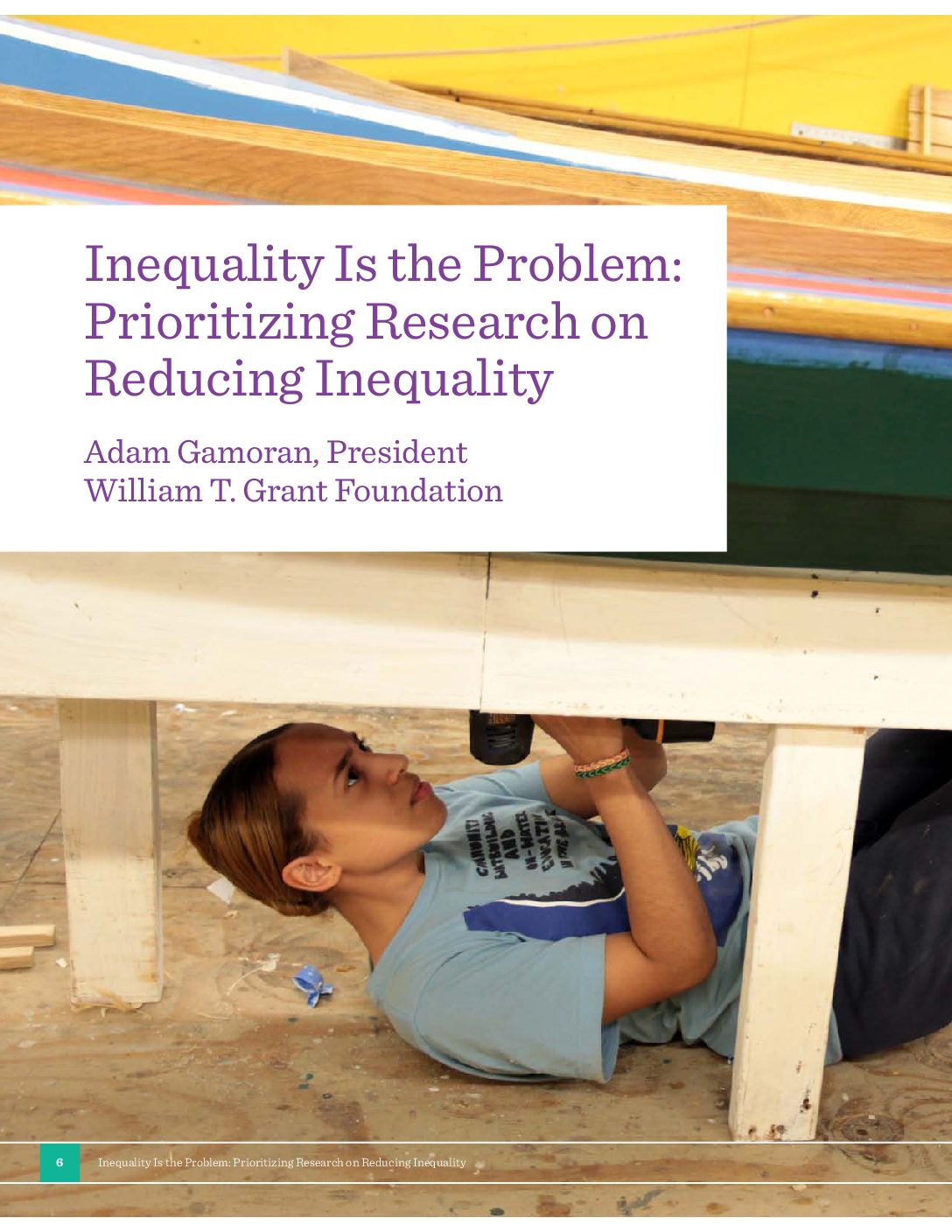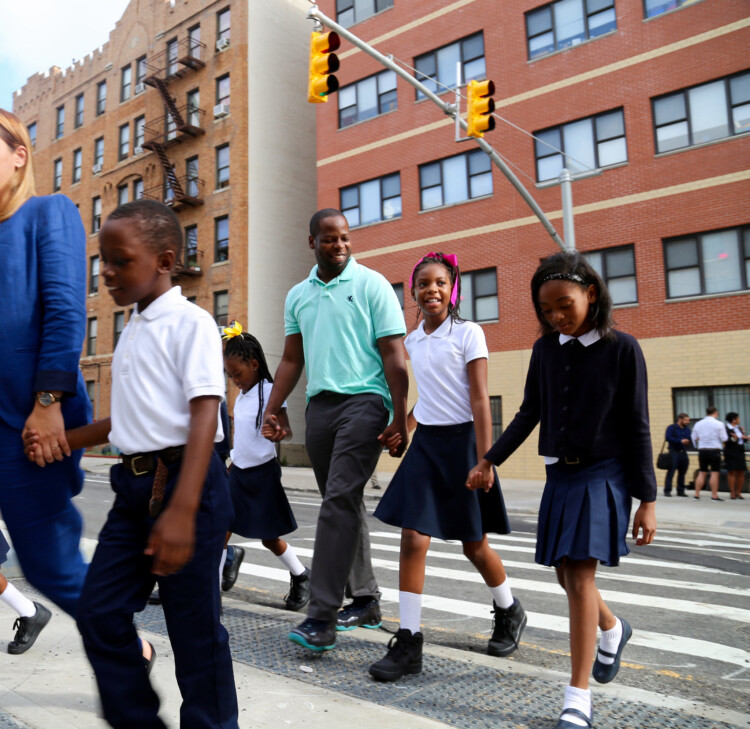Excerpt
The salience of inequality in the United States is widely recognized, and voices from many spheres are calling for efforts to combat inequality. Prior research and development demonstrates that social policies can reduce inequality and its effects on young people, yet the current level of inequality shows that past efforts have left us with wide disparities. Substantial new efforts are needed to identify approaches that will reduce inequality in youth outcomes so that a generation from now, both the degree of inequality in society and the effects of inequality on outcomes for youth will have diminished.
Through our new research initiative, the William T. Grant Foundation has pledged to play a role in this effort. We recognize that no single study will bring about change. Our hope, however, is that knowledge will eventually accumulate from many studies—those we support and those supported by others—which will point the way to real solutions to our pressing problems. We will continue to draw attention to inequality in young people’s academic, social, behavioral, and economic outcomes. We have commissioned five papers to address key issues: the first will set an agenda for research on social inequality and the others will examine inequalities through the lenses of immigration and education, mental health, criminal justice, and workforce development. And of course, we invite researchers to look to us for funding to build, understand, and assess promising approaches to reducing inequality. In these ways, we hope our work will make a meaningful contribution to meeting this “defining challenge of our time.”
This essay originally appeared in the Foundation’s 2013 Annual Report.






